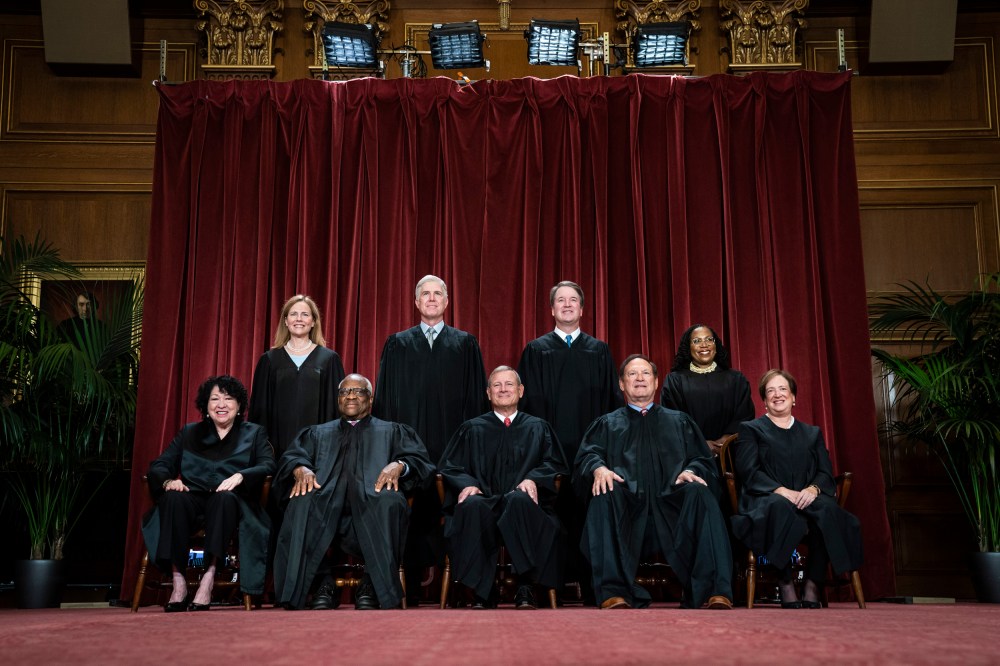The conservative justices of the Supreme Court signaled Wednesday that they could soon make good on a key part of the conservative agenda to begin to dismantle the administrative state. But after hours of oral arguments Wednesday in SEC v. Jarkesy, the conservative majority appeared ready to rule on relatively narrow grounds.
It’s unlikely that the eventual ruling will be a huge win for far-right conservatives who wish to eviscerate the administrative state as we know it.
It seems likely the court will reduce the Securities and Exchange Commission’s options to bring enforcement actions, forcing it to bring most actions before a district court, instead of administrative law judges who are specialists in financial regulations. In doing so it will most likely require the SEC to pick and choose which cases are bad enough to bring to a district judge. It’s unlikely, though, that the eventual ruling will be a huge win for some far-right conservatives who wish to eviscerate the administrative state as we know it.
The administrative state refers to executive branch agencies that, among other things, set standards for workplace safety and create environmental regulations and regulation of financial markets. Conservatives who’ve long had these agencies in their crosshairs argue that Congress has placed too much power in unelected and therefore unaccountable bureaucrats. Progressives, by contrast, typically argue that the administrative state is the manifestation of a functioning government, as the agencies that comprise the administrative state exist to protect the health, safety and welfare of the public.
This case the Supreme Court heard Wednesday began 10 years ago when the SEC, in an administrative proceeding against hedge fund founder and conservative talk radio host George Jarkesy, found that Jarkesy defrauded investors. The SEC imposed hundreds of thousands of dollars in fines on him. Jarkesy fought back by arguing that, as a constitutional matter, the SEC didn’t have the power to adjudicate the dispute or impose fines against him, and a divided panel of three judges on the conservative 5th U.S. Circuit Court of Appeals agreed.
Thus, the Supreme Court considered three questions Wednesday: whether administrative agencies, like the SEC, can adjudicate certain civil actions that seek monetary damages or whether such cases need to be heard before juries in a district court; whether Congress can allow administrative agencies the option of bringing actions before administrative law judges or district judges under the nondelegation doctrine, which prevents Congress from delegating its legislative power to executive agencies; and whether presidents must be able to remove officials such as administrative law judges at will or whether they can enjoy additional job protections.

Because the justices focused almost exclusively on the first issue during oral arguments, specifically, whether the Seventh Amendment requires a jury trial in cases such as the SEC’s case against Jarkesy, it appears the majority is likely to hand down an impactful but narrower ruling than it could hand down.












